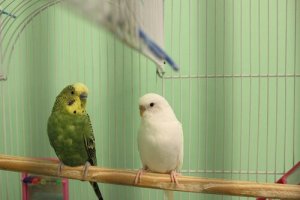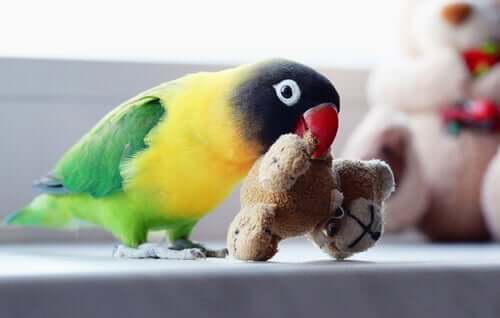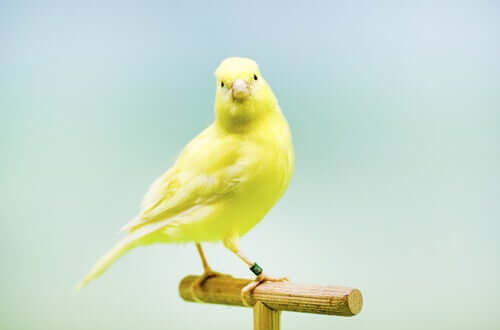What to Consider When Choosing a Bird as a Pet


Written and verified by the lawyer Francisco María García
Legal and responsible ownership
The trafficking of wild animals is a sad and unfortunate reality that affects almost every country in the world. This illegal industry threatens the survival of many animals and encourages the irresponsible ownership of pets.
First of all, it’s important to clarify that there are many species that are illegal to possess as pets. In the United States, there is a long and detailed list of wild animals it is against the law to own. Therefore, it’s extremely important to check this list before choosing a bird as a pet. Otherwise, you may find yourself in violation of the law.
It’s also important to remember that it’s a crime to raise birds that are at risk of extinction in captivity. Those who are guilty of this crime can suffer severe fines as well as legal penalties.
Therefore, if you’re looking to get a pet bird, then it’s your duty to look into the animal’s origin. What’s more, be sure to choose a reputable establishment to purchase it from. You should never go into business with private dealers or stores that don’t possess an official license. In these cases, the risk of financing the black market of animal trafficking is very high.

What to consider when choosing a bird as a pet
Having a pet isn’t a hobby and animals are not disposable toys. Rather, they are sensitive living creatures that deserve and need the respect, attention, and dedication of their owners.
The word “bird” embraces a large and diverse group of more than 300 species that have adapted to life in the air. Therefore, before choosing a bird as a pet, it’s important to understand the particular needs of each species. That way, you can avoid second thoughts that can put the well-being of an animal at risk.
Below, we’ll suggest the main aspects to consider before deciding to have a bird as a pet.
1. The size and characteristics of the space you have available
Birds come in all shapes and sizes, from tiny quails and canaries to extremely large parrots.
Therefore, potential bird owners need to choose a species that will be able to adapt comfortably to the conditions of their home. Any animal can become ill or display negative behavior when living in an unfavorable environment.
2. Socialization and domestication
More determining factors when choosing the bird you want to take home with you are its socialization and domestication skills. Just like dogs, some bird species find it easier to live alongside humans and other pets, and others find it more difficult.
When it comes to households with children, for example, you should opt for a bird with heightened social skills.
3. The owner’s level of experience
This is a basic rule when it comes to owning any kind of pet. First-time bird owners should choose species that are easier to care for and handle. Dealing with very large birds or birds with a lot of specific needs requires a lot of time and knowledge. The same is true if the future owner of the pet is a child.
4. Budget considerations
Some birds can be very expensive to own and look after. When evaluating your budget, you need to look much further than just the initial cost of purchasing your pet. You also need to consider the cost of dietary supplements, specialized veterinary care, the prevention of illnesses, and proper care for your pet.
In the same way, you should consider the costs of preparing your pet’s habitat, toys, and food. Any accessories that are necessary for the health and well-being of your feathered friend need to fit into your budget.
5. Life expectancy
This is a very delicate issue for all lovers and owners of domestic birds. Unfortunately, many bird species have a very short life expectancy, and this is something that their owners need to be ready to accept.
Canaries and goldfinches often don’t live more than 10 years in captivity, and parakeets 15 at the most. As for cockatiels, they can live between 12 to 20 years. On the other end of the spectrum are parrots and macaws, which can live for more than 50 years.

Choosing a bird as a pet: Caring for the well-being of your animal
Responsible bird owners should provide the right conditions for the growth and development of their pet. Therefore, it’s important to understand your bird’s habits as well as the care it will require to live a happy and healthy life.
When pet birds get sick, this is not only a risk to these animals themselves but to your home as well. So, take note of the main aspects of caring for domestic birds responsibly:
- A natural and balanced diet, including seeds and grains that keep them healthy and strong
- Toys and surroundings that encourage your bird’s physical and emotional development
- Preventative medicine: Visits to the veterinarian, regular worming, vaccines, proper hygiene, etc.
- Choose a cage that’s right for the size of your pet
- Create an adequate environment, seeking to recreate the optimal conditions of your bird’s natural habitat
- Maintaining a comfortable temperature, making sure it isn’t too hot or too cold for your bird. Also, protect your bird from harsh weather conditions like wind, rain, snow and strong sun rays.
- Training and socialization
- Love, care, and respect
Responsible ownership isn’t only important when it comes to birds. If you own any type of pet, be it a dog, cat, horse, and any other species, it’s your responsibility to offer proper care and protection.
Legal and responsible ownership
The trafficking of wild animals is a sad and unfortunate reality that affects almost every country in the world. This illegal industry threatens the survival of many animals and encourages the irresponsible ownership of pets.
First of all, it’s important to clarify that there are many species that are illegal to possess as pets. In the United States, there is a long and detailed list of wild animals it is against the law to own. Therefore, it’s extremely important to check this list before choosing a bird as a pet. Otherwise, you may find yourself in violation of the law.
It’s also important to remember that it’s a crime to raise birds that are at risk of extinction in captivity. Those who are guilty of this crime can suffer severe fines as well as legal penalties.
Therefore, if you’re looking to get a pet bird, then it’s your duty to look into the animal’s origin. What’s more, be sure to choose a reputable establishment to purchase it from. You should never go into business with private dealers or stores that don’t possess an official license. In these cases, the risk of financing the black market of animal trafficking is very high.

What to consider when choosing a bird as a pet
Having a pet isn’t a hobby and animals are not disposable toys. Rather, they are sensitive living creatures that deserve and need the respect, attention, and dedication of their owners.
The word “bird” embraces a large and diverse group of more than 300 species that have adapted to life in the air. Therefore, before choosing a bird as a pet, it’s important to understand the particular needs of each species. That way, you can avoid second thoughts that can put the well-being of an animal at risk.
Below, we’ll suggest the main aspects to consider before deciding to have a bird as a pet.
1. The size and characteristics of the space you have available
Birds come in all shapes and sizes, from tiny quails and canaries to extremely large parrots.
Therefore, potential bird owners need to choose a species that will be able to adapt comfortably to the conditions of their home. Any animal can become ill or display negative behavior when living in an unfavorable environment.
2. Socialization and domestication
More determining factors when choosing the bird you want to take home with you are its socialization and domestication skills. Just like dogs, some bird species find it easier to live alongside humans and other pets, and others find it more difficult.
When it comes to households with children, for example, you should opt for a bird with heightened social skills.
3. The owner’s level of experience
This is a basic rule when it comes to owning any kind of pet. First-time bird owners should choose species that are easier to care for and handle. Dealing with very large birds or birds with a lot of specific needs requires a lot of time and knowledge. The same is true if the future owner of the pet is a child.
4. Budget considerations
Some birds can be very expensive to own and look after. When evaluating your budget, you need to look much further than just the initial cost of purchasing your pet. You also need to consider the cost of dietary supplements, specialized veterinary care, the prevention of illnesses, and proper care for your pet.
In the same way, you should consider the costs of preparing your pet’s habitat, toys, and food. Any accessories that are necessary for the health and well-being of your feathered friend need to fit into your budget.
5. Life expectancy
This is a very delicate issue for all lovers and owners of domestic birds. Unfortunately, many bird species have a very short life expectancy, and this is something that their owners need to be ready to accept.
Canaries and goldfinches often don’t live more than 10 years in captivity, and parakeets 15 at the most. As for cockatiels, they can live between 12 to 20 years. On the other end of the spectrum are parrots and macaws, which can live for more than 50 years.

Choosing a bird as a pet: Caring for the well-being of your animal
Responsible bird owners should provide the right conditions for the growth and development of their pet. Therefore, it’s important to understand your bird’s habits as well as the care it will require to live a happy and healthy life.
When pet birds get sick, this is not only a risk to these animals themselves but to your home as well. So, take note of the main aspects of caring for domestic birds responsibly:
- A natural and balanced diet, including seeds and grains that keep them healthy and strong
- Toys and surroundings that encourage your bird’s physical and emotional development
- Preventative medicine: Visits to the veterinarian, regular worming, vaccines, proper hygiene, etc.
- Choose a cage that’s right for the size of your pet
- Create an adequate environment, seeking to recreate the optimal conditions of your bird’s natural habitat
- Maintaining a comfortable temperature, making sure it isn’t too hot or too cold for your bird. Also, protect your bird from harsh weather conditions like wind, rain, snow and strong sun rays.
- Training and socialization
- Love, care, and respect
Responsible ownership isn’t only important when it comes to birds. If you own any type of pet, be it a dog, cat, horse, and any other species, it’s your responsibility to offer proper care and protection.
This text is provided for informational purposes only and does not replace consultation with a professional. If in doubt, consult your specialist.








